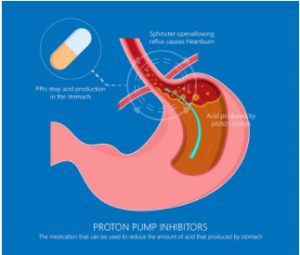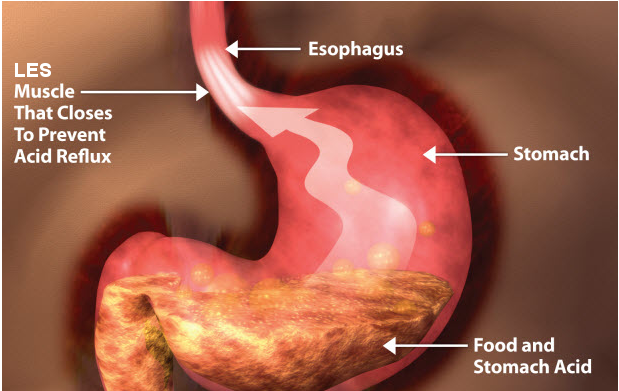Effective Treatments for GERD You Should Know
GERD is the abbreviation of gastroesophageal reflux disease, which is a functional disorder in the area of esophagus and digestive affectations. It is mostly present in the middle aged or older people. Very few know about the illness since a lot people take the symptoms to be ordinary afflictions. In this case, the chronic illnesses can advance to serious health hazards such as esophagitis- where the food pipe becomes swollen due to persistent acid, Barrett’s esophagus- caused by too much strain when swallowing and can lead to the esophagus being cancerous. It takes its place among the most secretive issues because although it’s symptoms are and many take it to be heartburn, nausea with or without vomiters of this section digestive system. Effective treatments for GERD are necessary since many people don’t understand the seriousness of this disorder, which lowers their quality of life. The most common one being a sore throat, where multiple cords are inflamed.
This nursing science review provides supporting evidence for understanding the etiology and clinical methods for treating gastroesophageal reflux disease(with the code M-3) It explains the causes of GERD as well as specifies the role of modern therapies, including integrative ones, in the treatment of this disease. We report quantitatively the case management of esophagitis and Barrett’s esophagus, further exploring vasomotor syndrome focusing on physiological function and disturbance, as well as surgical intervention as one of therapeutic methods.

Key Features of Effective Treatments for GERD
It is important to note that the treatment of this disorder is not 100% successful in every patient. All depend on self efficacy, severity of their disorder, physical parameters and activity level, their enhanced exercise sessions and quality of risk attempts goals and hopes are also highly important. The following parameters can enhance the treatment of drainage pelvis to make it suitable for patients.
1. Specific Approaches
There are no absolute guarantees with prognosis, however experts recommend considering both the triggering symptoms as well as contributing concerns within the body. Having a timeline plan for each patient makes the outcome better
2. Multifaceted Strategies.
In most cases, it is possible to combine lifestyle modification therapy with medications and, in selected cases, surgical procedures to increase efficacy. A holistic approach allows one to cater the multifarious dimensions of GERD.
3. Focus on Long-term Management.
Although the patients’ needs for instant comfort relief is understandable, the effective treatments should also provide emphasis on long-term management so as to avoid recurrence. It entails comprehending food choices, bodyweight control and lifestyle triggers.
4. Accessibility and Affordability.
Access to the treatments and their analysis can often affect patients’ adherence. There’s a necessity for effective treatments that are accessible and affordable to people in need and hence, obeys their management plans.
Specialty of Effective Treatments for GERD
Lifestyle Modifications.
The cornerstone of GERD management is lifestyle modifications in great parts. It is noteworthy to say that small changes could change symptoms management drastically:
Dietary Modifications: Simple steps like eliminating trigger stars such as greasy beef dishes, sour citrus, and cheese cakes could ameliorate symptoms.
Weight Reduction: It is likely that maintaining a reasonable weight averts excess abdominal pressure and thus decreases chances of esophageal reflux.
Head Position While Sleeping: This may be beneficial in preventing nighttime reflux by elevating the cause of the problem.
Inter-meal interval: Food should be served in small quantities and many times, rather than drastically large meals. This will aim to lessen the degree of reflux.
Medications Pharmaceutical options are available for the effective management of GERD symptoms.
These include: Antacids: such as Tums and Rolaids can also serve to neutralize stomach acid and provide rapid relief even though they are available over the counter.
H2 Receptor Antagonists: Drugs such as ranitidine and famotidine are usually used to relieve excessive acid production in the stomach relieving excessive pain, usually for the short term. Proton Pump Inhibitors (PPIs): Medications such as omeprazole or lansoprazole that can provide less damaging acid production in the stomach Many patients have permanent relief from stomach ulcers for an extended time.
Surgical Interventions Again, in more extreme circumstances where the condition cannot be tolerated with lifestyle changes and medications, surgery would then be an option. The most frequently carried intervention is fundoplication, which is where the top of the stomach is wrapped about the esophagus at the highest region so that reflux will not be possible.
Uses of Effective Treatments for GERD Symptom Management
With effective treatments for GERD, symptom management would be the foremost use of the state-of-the-art specialty of interests. By reducing heartburn, and regurgitation, and discomfort, the daily quality of life of the individual can improve tremendously. Prevention of Complications Mainly uncomplications of untreated gastroesophageal reflux disease do place a strong emphasis on the importance of effective treatments. Reducing the exposure of the acid and reliving the symptoms can lead to a reduced risk of esophagitis, strictures, or Barrett’s esophagus.
Improvement of Quality of Life
Individuals with gastroesophageal reflux disease (GERD) may choose to avoid or limit what some may consider the simple things in life such as sleep, work, and other social activities. However, restoring these life and interpersonal relations back to normal is possible with effective treatments.
Education and Awareness
The education of patients is an integral part of effective management of a disease or a condition: patients need to be aware of their condition, potential triggers and the significance of compliance to treatment. This gives individuals the means to manage their health independently.
Main Theme of Effective Treatments for GERD
The main theme surrounding the effective treatment for GERD is that the disease is best managed in a composite manner, meaning that the treatment must involve the patient’s lifestyle, medication, and surgical options if needed. GERD can be better managed by focusing on education, self-awareness and routine communication with doctors. However, this permanent solution is not confined to the treatment of symptoms but also the actual cause of the disease.
Pros and Cons of Effective Treatments for GERD
Pros Cons
Personalized Care: Custom treatment plan for individual patients. Side Effects: Adverse effects of some medicines are unavoidable.
Holistic Approach: Lifestyle changes and medications are in tandem. Cost: Sustained use of the prescription medications may be costly over time.
Variety of Options: Wide range of treatment options for variation. Surgical Risks: Risks and complications from surgical options are unavoidable.
Symptom Relief: Effective treatments conclude with marked improvement of symptoms. Lifestyle Changes Required: Maintenance of successful management also requires making changes to lifestyle.
Conclusion: Effective Treatments for GERD
The treatment of GERD is not a single approach, but rather a combination of lifestyle changes, medications, and surgery in severe cases. The understanding and application of such treatment will allow a patient to cope with the symptoms, evade such prognosis, and enhance the overall life quality. The experience of fighting GERD is unique for each person, sometimes a patient has to experiment with various methods to learn what works best for them.
It’s very important for patients to seek specialized help and know their current status in regard to this disease. Appropriate management of GERD, with the right focus can allow patients to lead a better and easier life.
FAQs: Effective Treatments for GERD
What are the best lifestyle changes to manage GERD?
The best lifestyle changes include, avoiding trigger foods, keeping healthy body weight, eating smaller meals, and more so sleeping with the head up.
How do medications for GERD work?
Medication for GERD works by working on the stomach and either inhibiting acid secretion or diminishing acid concentration that provides relief from symptoms.
Are there any natural ways to combat GERD?
Some of the natural remedies include ginger, chamomile tea and apple cider vinegar, however it is best to seek a physician’s advice before going for them.
In what situation would I think of surgery for GERD?
In the cases where medications and lifestyle adjustments are not giving satisfactory results, or extreme complications set in, surgery can be considered as a last resort.
Does GERD pose any dangers to health?
Yes, in the absence of treatment, a number of complications may develop from GERD, including but not limited to, esophagitis, Barrett’s esophagus, strictures and increased susceptibility to esophageal adenocarcinoma.
This review demonstrates precisely how those who suffer from this disease can effectively rely on the knowledge of an effective treatment of GERD. By adopting a multipronged approach and keeping themselves updated, they should be in a position to make substantial progress in the management of GERD.
